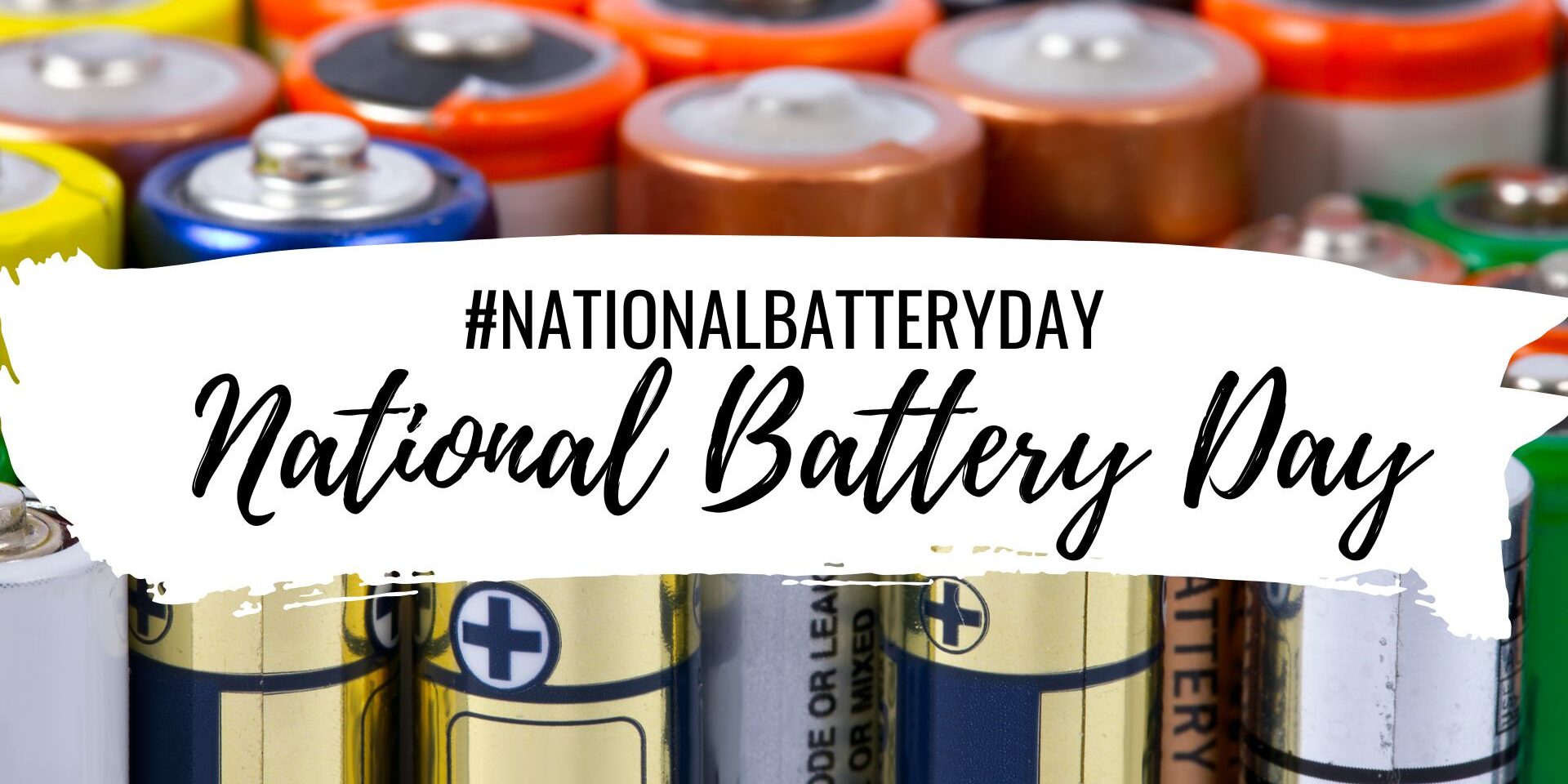A share from National Day Calendar.
NATIONAL BATTERY DAY
Get a charge out of National Battery Day! Observed each year on February 18th, the day serves to appreciate the convenience batteries provide to our everyday lives.
#NationalBatteryDay
Today we would be hard-pressed to find someone in the United States who doesn’t benefit from a battery. Even those who live “off the grid” have battery-operated devices such as a flashlight, radio, or watch.
A battery changes chemical energy into electricity by bringing the different chemicals together in a specific order. When correctly ordered, the electrons will travel from one substance to another, creating an electrical current.
HOW TO OBSERVE NATIONAL BATTERY DAY
-
Take count of how many batteries you rely on in your life. Don’t forget, our phones, watches, hearing aids, and many more items all use batteries.
-
Spend the day learning more about batteries – the different kinds, where battery design is headed, and more.
-
Read about the types of batteries available on the market. Some last longer, are rechargeable and are more environmentally friendly.
-
Take stock. How many batteries does your home and environment require? Toys, remote controls, cars – the numbers add up.
-
Discover the best ways to recycle your batteries. Some batteries are easier to recycle than others.
-
Educators and families, visit the National Day Calendar Classroom for projects and ideas to celebrate the day.
-
Use #NationalBatteryDay to post on social media.
NATIONAL BATTERY DAY HISTORY
National Battery Day commemorates the anniversary of Alessandro Volta’s birth on February 18, 1745.
Battery FAQ
Q. What’s the difference between lithium and alkaline batteries?
A. There are several differences between lithium and alkaline batteries.
-
Battery life: A lithium battery will last longer than an alkaline battery.
-
Cost: Alkaline batteries cost less than lithium batteries.
-
Durability: Extreme heat or cold drain battery power. Lithium batteries are more durable in extreme conditions than alkaline batteries.
-
Weight: Alkaline batteries are heavier than lithium.
-
Recyclable: Lithium batteries are more easily recycled than alkaline batteries.
-
Rechargeable: Lithium batteries may be rechargeable while alkaline batteries are not.









